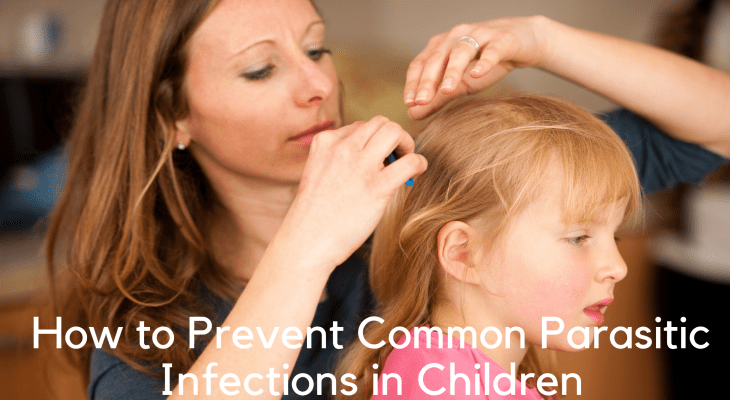You probably don’t want to talk about parasites, yet remaining silent can result in more severe illness. Parasitic infections are a relatively common school health issue and are easily treated. The following information will help you understand how your child can be exposed to parasites and what you can do to prevent five common parasitic infections.
Head Lice
Head lice infestations are rampant in schools and other community settings. Head lice are small parasites that are directly spread through head-to-head contact and indirectly through objects. While you can tell your children to stay away from friends with itchy heads, it is more helpful to remind them to use their own pillows, hats, and combs.
Giardiasis
Giardia is a parasite that is spread through the fecal-to-oral route. This means that when you eat or drink food and beverages that have been contaminated with infected stool, you can get giardiasis. Since the main symptom of giardiasis is diarrhea, it is very quickly spread. Proper hand-washing, kitchen sanitation, and only consuming non-infected food or beverages can prevent giardia infection.
Pinworm
Pinworms are spread by ingesting pinworm eggs. Since these can survive on toilet seats, bedding, and clothing for two to three weeks, they are easily transferred to the hands or mouth. Because the primary symptom is itching near the anus, it can be hard to tell if your child has picked them up. Prevention includes hand-washing, showering in the morning, and wearing clean underwear.
Cryptosporidiosis
Like giardiasis, cryptosporidiosis is caused by a parasite spread through the oral-to-fecal route. Its main symptom is watery diarrhea, so it can quickly become a school health nightmare. Vigilant hand-washing and kitchen sanitation are critical for prevention.
Toxoplasmosis
The Toxoplasma gondii parasite is spread primarily through eating undercooked meat and ingesting cat feces. It doesn’t usually have symptoms but can cause fetal complications or miscarriage if you catch toxoplasmosis shortly before or while you’re pregnant. Prevention involves cooking meat to safe temperatures and avoiding used cat litter if you’re pregnant.
Learning about parasitic infections is the first step toward preventing them. Whether you’re a parent or school administrator, taking the preventive actions outlined above can help you maximize community and school health.
Disclaimer: The information posted on this page is for educational purposes only. If you need medical advice or help with a diagnosis, contact your medical professional.


